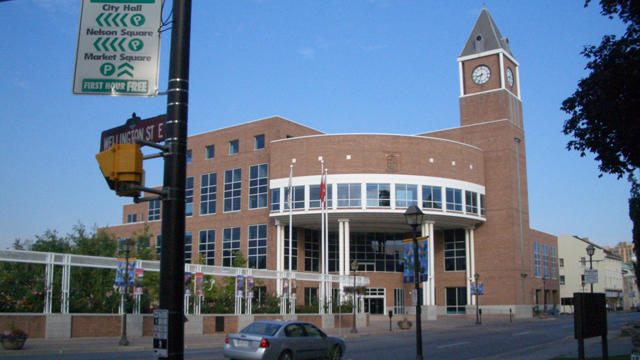Major Changes in Store for Brampton
Published March 23, 2017 at 5:06 pm

The Trudeau government introduced the 2017 budget this week and Brampton Mayor Linda Jeffrey is calling the plan a “game changer” for the municipality.
The Trudeau government introduced the 2017 budget this week and Brampton Mayor Linda Jeffrey is calling the plan a “game changer” for the municipality.
City officials were eagerly awaiting the budget, especially since many of Canada’s bigger cities–and Brampton most certainly qualifies–are pushing for more tools to better manage their infrastructure, especially when it comes to transit and affordable housing.
“This budget is a game changer for municipalities in Canada, including Brampton,” Jeffrey said in a statement. “Brampton is the second fastest growing city in Canada, and is currently the ninth largest city in the country. We have a young, bold and innovative population looking to be players on the national and international stage. We now have the tools to empower our local government to bring about the changes our residents require in a new economy.”
Over the past few months, Jeffrey has talked extensively about Brampton’s emerging innovation sector (a conversation that’s become more pronounced following a number of exciting announcements regarding the proposed Ryerson University campus that’s slated to take shape in the city). With the government promising to invest more in innovation, Jeffrey is encouraged that the city can take positive advantage.
“The 2017 federal budget gives Brampton the tools necessary to strengthen our emerging innovation sector. We are eager to take full advantage of our central location on the Innovation Super Corridor, a high tech cluster hugging the GO rail service between Waterloo and Toronto,” says Jeffrey. “Our city can use federal innovation dollars to ensure our industries, whether in advance manufacturing or in our emerging life sciences hub, have the resources to compete in a global market.”
The mayor also pointed out that the budget will help the city strengthen its public transit requirements. Since transit is a huge priority for a number of cities–especially in light of the fact that several major higher-order transit projects, namely LRTs, are about to take shape in some of the province’s bigger municipalities–it’s good that Brampton has some resources available to manage its affairs.
In fact, the city recently learned that the federal government is investing $32.4 million in several public transit infrastructure projects in the city.
“The budget helps Brampton to continue to strengthen our public transit requirements, affordable housing needs, and green infrastructure. For example, predictable federal allocations and realistic cost-sharing allows us to continue to bolster our popular rapid bus service as we see increase ridership year over year,” explains Jeffrey.
The budget is heavily focused on infrastructure investment, so it appears the Liberals are dedicated to keeping their campaign promise to build faster, stronger and more efficient cities. With aging infrastructure, lacklustre transit in major cities and a mounting affordable housing crisis, increased focus on innovative and focused solutions is encouraging.
“Municipalities such as ours have been asking the federal government to work with us to build a stronger Canada. Today they have said yes to ensure that the economic engines of our country stay healthy and robust,” says Jeffrey. “I am keen on disrupting the status quo in Brampton, and today’s budget goes a long way in ensuring as a city we can.”
insauga's Editorial Standards and Policies advertising





